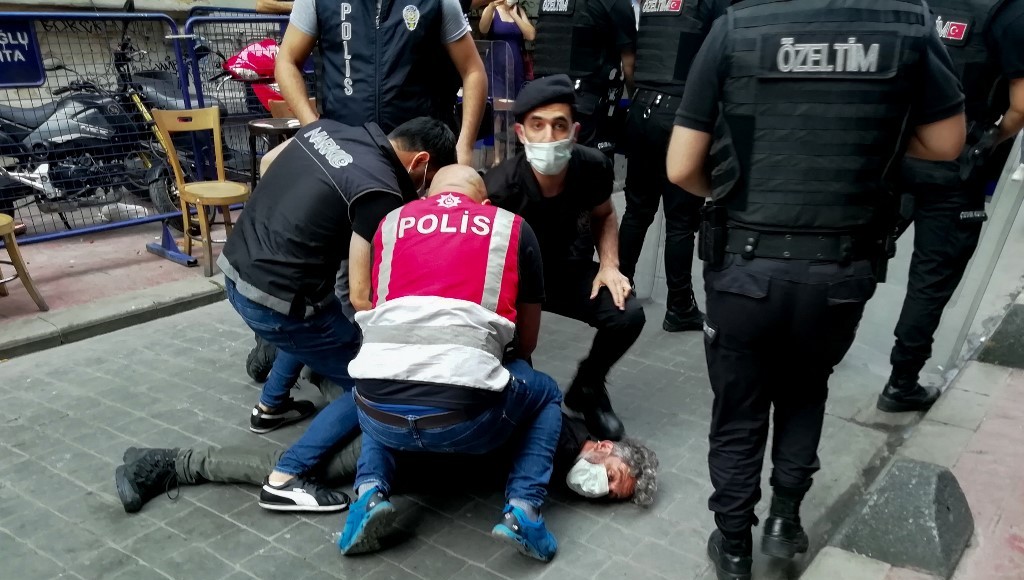An administrative court in İstanbul has ordered the Ministry of Interior to pay Agence France-Presse (AFP) photographer Bülent Kılıç damages because the police used “disproportionate force” while detaining him in 2021, Turkish media reports said on Monday, citing the Media and Law Studies Association (MLSA).
According to the MLSA, the İstanbul 8th Administrative Court on Sunday found that the police officers who detained Kılıç, an award-winning photojournalist for AFP, while he was covering the 19th İstanbul Pride March on June 26, 2021, used “excessive force” and ordered the ministry to pay him a total of TL 30,095 ($1,600) in material and non-pecuniary damages.
Officers hit Kılıç in the face with his camera and threw the camera to the ground, breaking it, and then pinned him to the ground by kneeling on his neck and back, according to the interview the journalist gave to the local Anka News Agency.
The legal unit of the MLSA had filed a lawsuit in September 2021 seeking damages on behalf of Kılıç, who was subjected to police violence while covering the 19th İstanbul LGBTI+ Pride March, the association said, with Kılıç’s lawyers requesting that the journalist be compensated for his damaged camera and the period of time he was unable to work due to the damage to his equipment.
The court, which handed down its judgment after examining an expert report and photos of the incident, found that “the elements of misconduct occurred” as the police officers who had detained the journalist “used excessive force, transgressing their right to the use of force.”
The criminal investigation by the İstanbul Chief Public Prosecutor’s Office into two police officers for “intentional injury” and “abuse of public duty” is still ongoing, the MLSA said, citing the court’s judgment.
It is common for journalists in Turkey, which has a poor record on freedom of the press, to face threats, physical attacks and legal harassment due to their work.
Rights groups routinely accuse the Turkish government of trying to keep the press under control by imprisoning journalists, eliminating media outlets, overseeing the purchase of media brands by pro-government conglomerates and using regulatory authorities to exert financial pressure, especially after President Recep Tayyip Erdoğan survived a failed coup in July 2016.
Turkey, which is among the top jailers of journalists in the world, was ranked 149th among 180 countries in the Reporters Without Borders (RSF) 2022 World Press Freedom Index.
